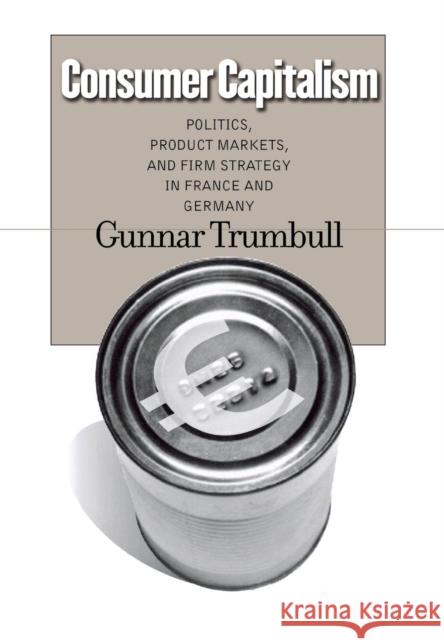Consumer Capitalism: Politics, Product Markets, and Firm Strategy in France and Germany » książka
Consumer Capitalism: Politics, Product Markets, and Firm Strategy in France and Germany
ISBN-13: 9780801443824 / Angielski / Twarda / 2006 / 208 str.
"The unfettered marketplace, in which uncertainty rules and the admonition caveat emptor ('let the buyer beware') dictates each consumer decision, has today virtually disappeared. Consumers have become the focus of intensive economic policymaking designed to protect them from the risks and disappointments of the market. . . . Today, arguably no other economic actor in the advanced industrial countries not the investor, not the worker, not the welfare recipient enjoys a more thorough set of legal and institutional protections than the modern consumer when he or she enters the corner store." from the IntroductionGunnar Trumbull investigates the origins of national systems of consumer protection in France and Germany, where, in the early 1970s, consumer groups and producers organized to advance their own ideas about the identity and interests of the affluent consumer. Through a comparison of eight areas of policy product liability law, product safety standards and recall, misleading advertising, comparative product tests, product labeling, quality standards, consumer contracts, and pricing Trumbull shows that different conceptions of the consumer interest emerged in the two countries. The result was the development of distinctive national consumption regimes, which have in turn influenced the market strategies of domestic producers. Trumbull's findings help to clarify distinctive national approaches to recent product crises including cases of BSE and genetically modified foods. His research suggests that, in the age of consumer capitalism, national competitiveness may hinge not only on endowments of labor and capital, but also on the institutional forms of national consumption."











